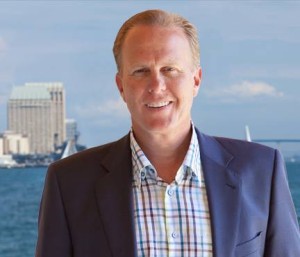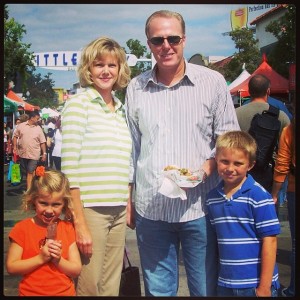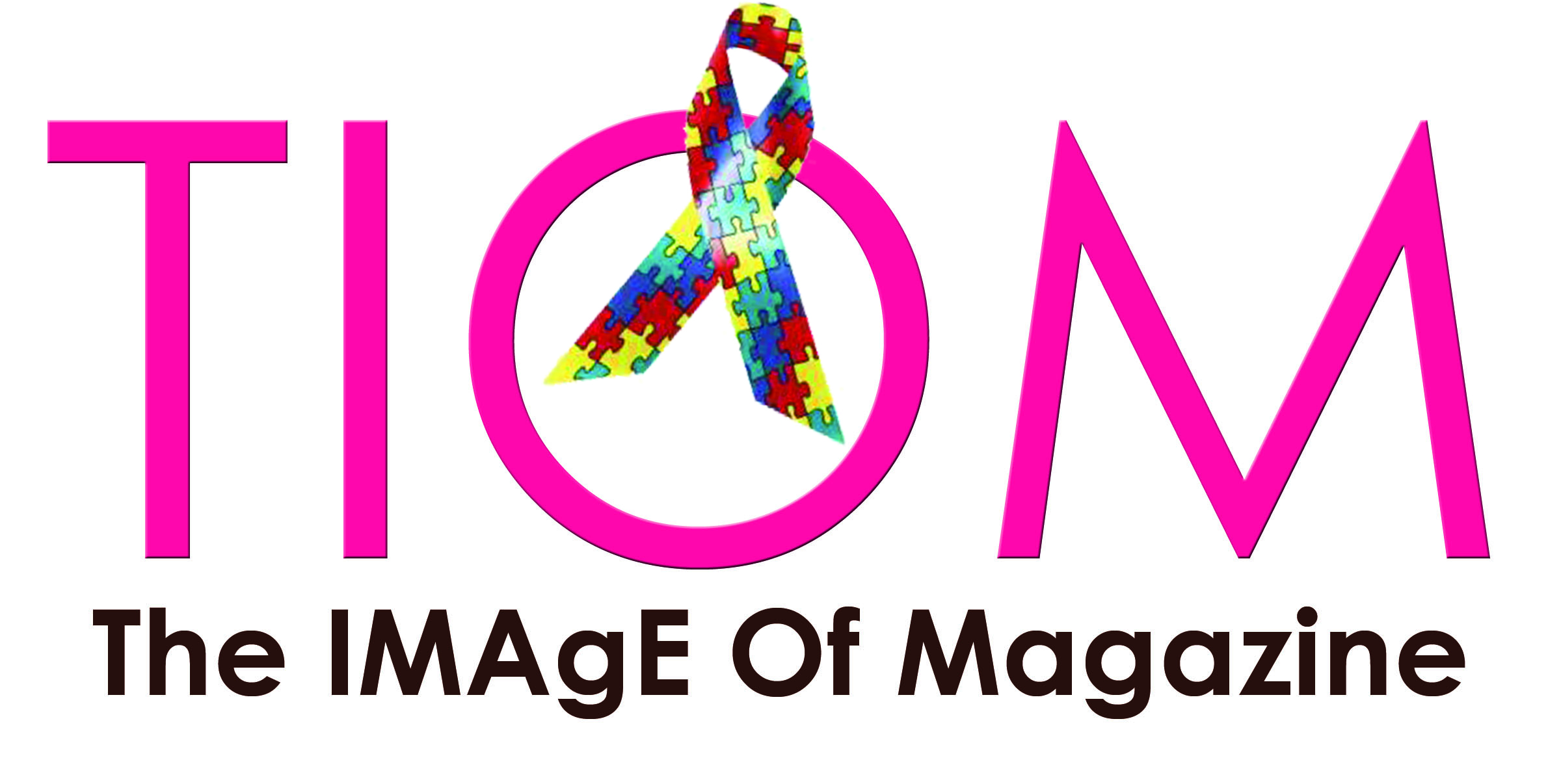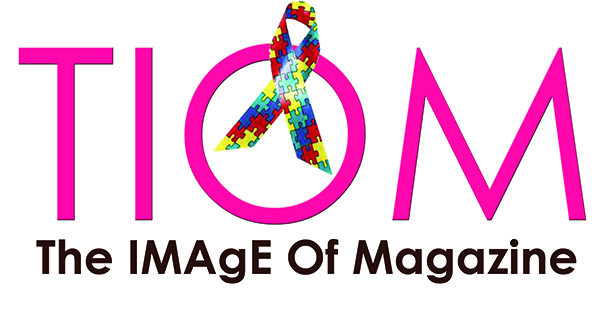Kevin Faulconer
ABOUT KEVIN FAULCONER
 Kevin Faulconer was elected to the City Council to help heal the city following the last mayoral resignation in 2006. He has worked hard every day since then to repair the city’s finances and credibility. Through Kevin’s efforts, the City regained its credit rating, balanced its budget and has taken real action to increase funding for street repair.
Kevin Faulconer was elected to the City Council to help heal the city following the last mayoral resignation in 2006. He has worked hard every day since then to repair the city’s finances and credibility. Through Kevin’s efforts, the City regained its credit rating, balanced its budget and has taken real action to increase funding for street repair.
Kevin is focused on restoring trust and integrity to the mayor’s office, and increasing financial stability, transparency and accountability at City Hall. He is proudly committed to getting the most for our tax dollars, growing our economy, protecting our environment and beaches, and delivering results for all San Diego neighborhoods.
Kevin has a track record of success and getting things done for San Diego. In 2008, he took a lead role in writing the Mission Bay Park Initiative, which passed with 67% of the vote. The measure ensures money generated in Mission Bay Park is invested there and at other city parks, protecting our environment and supporting San Diego’s tourism economy and jobs
In 2010, Kevin and a handful of others led the campaign against a massive sales tax hike; voters joined Kevin to overwhelmingly reject the increase. In 2011, Kevin voted to reduce retiree health care costs by $800 million over 30 years through a landmark reform effort. In 2012, Kevin co-authored the Comprehensive Pension Reform ballot initiative to end the broken pension system and create a fair and affordable retirement plan for City employees. In 2013, he negotiated a historic 5-year labor agreement that locks in pension reform and saves a generation of taxpayers $1 billion.
As Audit Committee chair, Kevin has helped identify more than $50 million in opportunities to improve the effectiveness of City services, reduce costs and cut red tape.  Kevin continues to be a tireless advocate for full implementation of efficiencies including managed competition – the voter-approved program for reducing government waste through competitive bidding of city services
Kevin continues to be a tireless advocate for full implementation of efficiencies including managed competition – the voter-approved program for reducing government waste through competitive bidding of city services
Kevin is a proud graduate of San Diego State University where he served in student government. Prior to being elected, Kevin worked in public relations for more than a decade and was vice president of a leading firm where he managed complex projects within strict budget guidelines.
He and his wife, Katherine, a small business owner, live in Point Loma with their school-aged children Jack and Lauren.
In January of this year, both Mayoral candidates accepted an invitation to speak at Shop Talk at The Imperial Barbershop located in the 4th District. They agreed to talk as well as take question from the constituents in that community, give their views and address their concerns. TIOM has given equal time and opportunity for both candidates to give their views to our readers, to not show any bias for either. Our goal was to allow our readers to hear the candidates in their own words and let them make an informed decision, not based on editorials or party affiliation. This is an important election for the direction forward for San Diego and we urge everyone to tune in and get out and VOTE. The elections are this Tuesday February 11th.
Shop Talk w/ Kevin Faulconer
Full Audio of Kevin Faulconer Shop Talk
Kevin Faulconer Shop Talk Transcribed:
I Think of myself as somebody, uh, who’s been on the council now for 8 years, workin’ real hard. And today I’m out, uh, you know, doin’ just what we’re doing every weekend. Goin’ out, talkin’ to neighbors about making the tough choices at city hall and invest in the neighborhoods. And that’s why I’m here today, talking about neighborhoods, talkin’ about jobs, uh, and talkin’ about a guy who’s been fighting for us and a guy you can trust to keep that progress even when other folks want to stop that progress.
And uh, so, lettin’ me come here today, say a few words means a lot to me. And, uh, I’m delighted to any questions and, uh, have a great conversation. So, uh, fire away. Tell me what’s, uh, what’s happening, what’s on your mind.
—–
I’ve got a question for you. You opened your office here last week, um, here in South East. What is the significance of opening your office here in San Diego? And why now?
—–
It’s about, it’s about inclusion. It’s about letting know that everyone has a seat at the table and let them know that you have a person that’s been fightin’, you know, for the city to turn it around. And makin’ sure we’re spending our dollars in the neighborhood. There’s no better way than I can demonstrate through being here and bein’ out in the community and to have such strong support that we got last week, particularly ministers and pastors who stood up to endorse me. I’m feeling very proud about it. Uh, and I’m out here today, first hand. It’s all about jobs. It’s all about creatin’ to make sure that we’re puttin’ our money in our neighborhoods.
—–
Uh, but talkin’ about your endorsements, could you give us a brief about the endorsements that you have gotten from pastors and people in the community?
—–
Yeah, you know, thank you my friend. You know, to have the support of people like Reverend Ricky Lester who stood up, and who knows first hand what it means, and the work that I’ve done. It’s not about words, it’s about the work I’ve already done, about making sure we’re havin’ contracts that the city can spend here locally. Makin’ sure that our contracts get to our men and women here in San Diego.
Uh, and so, that’s what I’ve been talking about. That’s what I’ve been fighting for. Uh, and that’s what I’m gonna do as mayor, particularly where we’re comin’ out of the recession. To have somebody that has the experience fightin’ for jobs. Makin’ sure that we’re getting economic and development opportunities, particularly here on Imperial Avenue. And it’s not about talkin’ about it, it’s the guy who has the track record to get it done.
[screaming outside]
And I hope everybody can hear. hahha
—–
Oh yeah, everybody can hear. There you go, Coach Kerns.
—–
I have a specific type of concern. Um, first of all I would like to, to congratulate you ’cause this is the first Republican in my 62 years of being in San Diego that has ever opened an office here in Southeast San Diego. And I think that’s, that’s highly commendable.
—–
Thank you, coach.
—–
I’m not a republican. I’m not a democrat. But I do recognize that. And I know David went into the lion’s den. I can see that you’re a man of courage, and I appreciate that. You may not agree, but I respect you.
—–
Ah, thank you.
—–
OK, here’s my concern. I’ve been, and my family, have been working in this community. My, my father was a coach to Judge Gill (?). My brothers served at Luden High School, coach of the year, coached …Kevin Mitchell. I’ve coached the only world champion that we ever had in San Diego boxing. So you know that, that my family is athletics.
I have a particular concern, because even though it’s 2014, a lot of our young people still see athletics as a viable alternative. God bless the YMCA, god bless The Boys Club. They do an outstanding job at keeping the good kids on the right track.
I was employed with the YMCA. Everything that you see down there now, myself and a gentlemen named Therman Stockton (?)… way back in the 1970s.
Here’s my concern, for the last, since 2008, I’ve been working on getting this, um, right across from the police sub station there’s a vacant property that was zoned to be a fire station. Later on down the line. In the interim, I’ve been working to get, uh, that development to be a youth center specifically designed to take a hands-on approach to our youngsters one-on-one situation and guide them all the way to college. This is what my family has done. And the YMCA and Boys Clubs and everything else doesn’t do that.
I particularly came to the city because, to do that type of work in a commercial environment would be too cost effective for the young people in this community. They just can’t do it. I can’t charge $150, $200 a month for the young people. I can’t even do, for the young people I’m trying to reach, I can’t charge the fees that the YMCAs are charging. Those are too prohibitive. I’m in the sport of boxing. I teach street-tough youth who want to fight. They want to fight. They want to put their hand in somebody’s face. What I do is I facilitate that, and I put in a forum that is legitimate and a forum that they can see themselves grow. And then we get the education tools to take ’em through college, with financial grants and everything. So that’s my passion, okay.
In approaching the city, lot of people talk about Bob Filner, and whatever, and I don’t like those campaigns, because Bob Filner was the only one who tried to help. He was accessible. I gave him my paperwork, and I’ve been working on since 2008. He looked at it and said, “Robert, this is dumb”. He said, the city is not going to do anything with this project but yet they don’t want anyone else to do anything else with it either. That’s stupid. Let’s getting this ball rolling. We got the ball rolling, and they worked very hard. But then at the last minute, our new councilwoman Mertle Cole decided to put a stop to it, for whatever reasons. I’ve written her several letters with no response back. Okay?
I need to know, because here’s what’s gonna happen. Somebody’s gonna get shot. Some kid’s gonna get killed. And then everybody in the community is gonna come together and say, “well ,what needs to be done”? I don’t like to attend those meetings. I hate those meeting because all it is, is everybody vents. And everybody walks out the door. And then it’s business as usually. No politician other than Bob Filner, he just had a penis problem, I’m sorry to say that, other than Bob Filner wanted to take that step of putting themselves on the line.
If someone’s gonna get my vote, eh, you can talk about jobs, okay. But whoever, whoever you build that infrastructure for, be it Food For Less, be it anybody else. They’re gonna, they’re gonna employ who they want to employ, and a lot of times those [inaudible] are not people in our community. They’re not people who have faces like us. A lot of times they employ people from outside. So just creating jobs that, fixing cracks in our streets, that’s good. But what I’m here to do is try to align with someone who is going to fix the cracks in the character of our young people. Somebody who’s gonna stand up and do something like that. That is my passion.
I’m gonna tell you, people don’t understand. You may think, I know most of these people have a different perspective. You may think, well it’s just baseball. It’s just basketball. It’s just football. This is a lifestyle to us. Okay. When a person falls out of that situation. They fall back to street crime. I mean, it changes the dynamic of their life.
One story –
I was up in Los Angeles doing my program, 1984 Olympic Games. I was a training site director at the 1984 Olympic Games. There was a young kid who came to me and wanted to be on my staff. He was on my staff. And then, I took an interest in this young man, and he came and lived with me for about 8 months. I wanted to come back to San Diego ’cause I was divorced, and my kids were here in San Diego. I came back to San Diego. And during that time, our organization broke up. Okay. I couldn’t find a stronghold in San Diego, because San Diego just is not youth friendly. I could not find a stronghold. During that interim time, that young man got in one of the biggest reported situations that ever happen in San Diego. [inaudible]
I don’t know where you stand on that. That was a good boy. I know him. He lived with me. I would not have taken him in my house if that wasn’t a good kid. But because we cannot do anything in San Diego to help our young people, kids like that fall through the cracks. Kids that can’t afford the YMCA.
—–
Yeah, I remember that. And the guy was very well defended by the community because he stood for justice. One of the things that this brother’s been doing for so long, I want to point that out is, he’s been saving these young people through sports.
And I think of the things that the new mayor of this city, that we need to give support and give, uh, attention to people like Robert Coons who’s an unsung here, and all the things he’s been doing.
You know, and I want to thank Mario for this, this uh, opportunity to meet. Mario, you steppin’ up. This is a grassroots urban leader as we talk today with a couple of folks – the black presidents of different organizations getting together to have one agenda. And the agenda, regardless of who’s in office. And I think that Kevin’s gonna be a business leader, he’s gonna be labor-friendly. And he’s gonna do the things that we need to do. But I think this is a great opportunity, and, you know, I hope that you can give us a little time after you’re here. But let’s hear from Kevin…
—–
Coach is still goin’.
—–
You all gotta bare with me. The elevator don’t go all the way to the top, I gotta think about what I’m sayin’.
—–
A little punch drunk, too, huh?
—–
So, what I’m saying. The bottom line is this. We have a lot of crime in our community. Places that are not being used for anything. That was just one. We, we have off of the freeway, we have ’em all through our community. Just pockets, the old libraries, both of them, the old Cholas (?) nursing. There’s just places sitting dormant, that the city won’t use, and the city doesn’t want anyone else to use. How can someone, people like myself, people in this community, access those, those types of property, so we can do something for young people in this community where they don’t have to spend $100, $200 a month to get in something…
—–
Thank you, coach. And thank you for your, for your words. I appreciate what you’re saying about our office, and demonstrate that it is gonna be inclusion. Let me also agree, what you’re talking about and how long it’s been taking you, I hate to hear that. We can’t have that happen because when we have pieces of property that good folks are tryin’ to do good things with, we have to be helpin’ from the city to help you be successful. And not have the bureaucracy give you 18 ways to Friday why it can’t happen. That is one of the things that frustrates me the most, uh, as a guy who’s been on the council, pushin’ hard makin’ some of these changes.
And now, when I’m successful to be mayor, I have the ability to make those changes and make them, and make them quickly, to your point to offer opportunities for our youth. And I’m, I’m with you on what the YMCA does on how important that is. So you’re gonna have a champion, in me, to cut the red tape, cut that bureaucracy, so you can do what you need to do.
But more than that, have a mayor that recognizes that it’s important to begin with.
And my team, my folks are going to be able to help. And that’s why I think we’re taking this message out to every single place. And it’s about investing. Let me just close on that. To make sure that we’re attracting folks who want to invest their dollars and know that when they go through the city, they’re going to have the ability to do that and to get through that process quickly.
—–
One more question, uh, Chargers play tomorrow.
—–
Chargers play tomorrow. Chargers gonna win tomorrow.
—–
And uh, I got a question for you. Super Bowl 2003 was very profitable for a lot of people here in San Diego, especially small business like myself ’cause I did profit from it. 2007, corporations came in and kind of, you know, squeezed us out. The stadium is number one for my question. Are we gettin’ that stadium for the Chargers, and can we get another Super Bowl back here in San Diego?
—–
Well let me just say, um, Chargers are important. Chargers are important to the whole region. Chargers are important to the whole city. And they’re gonna do great tomorrow in Denver. I’m not worried about the Colts. Chargers are gonna do it.
Uh, and I’m less concerned about where a stadium may or may not be located but more concerned that any financing plan has to protect us as tax payers. Those are the things that we’ve been talking about, our streets, our sidewalks, gettin’ more police officers on the street, makin’ sure our libraries and rec centers are open. Those are important. Chargers are important as well. And as mayor, I’m gonna make sure I’m workin’ to make sure a plan protects us, protects us as tax payers. And by workin’ together, I think we can get that done. Great question. Great question.
—–
And puts San Diegans to work.
—–
Yes sir. Any other thoughts guy?
—–
Another other thoughts? Nobody? Okay, this is Shop Talk. We’re here to talk. I guess I’m gonna have a question for you.
—–
Yes sir.
—–
Grassroots organizations like 100 Strong, Jamid and myself, uh, we were actually, we were actually, we actually came together today because we’re looking at bringing all the, uh, the leaders of all these diffe

